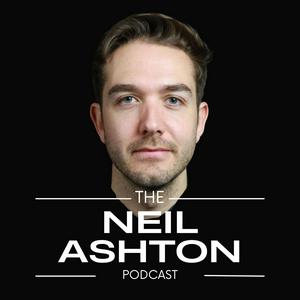In this episode, Joris Poort, CEO and founder of Rescale, shares his personal journey on founding Rescale as well as his thoughts on the future of CAE. He discusses the challenges of introducing HPC to the cloud market, the traits that make successful founders, and the importance of perseverance and execution in entrepreneurship. Joris reflects on the early days of Rescale, the significance of early investors, and the evolving landscape of cloud computing and AI integration in engineering. The conversation highlights the complexities of transitioning to cloud solutions and the future potential of HPC in various industries. In this conversation, Joris discusses the transformative impact of AI on engineering, particularly in the context of inference, simulation, and automation. He emphasizes the importance of efficiency in engineering processes and how AI can significantly reduce the time required for complex simulations. The discussion also touches on the cultural shifts within organizations as they adapt to AI technologies, the potential for AI surrogates to revolutionize engineering practices, and the challenges of closing the sim-to-real gap. Joris offers insights for aspiring founders, encouraging them to pursue meaningful work that can drive innovation and societal progress.
Chapters
00:00 Introductions
03:30 The Genesis of Rescale: A Cloud Computing Journey
05:21 From Engineering to Entrepreneurship: The Leap of Faith
09:28 Traits of a Successful Founder: Courage and Perseverance
14:51 Tactical Steps to Startup Success: Building from the Ground Up
22:10 Milestones and Breakthroughs: The Early Days of Rescale
30:54 Navigating Challenges: The Role of Cloud Providers in HPC
35:24 The Intersection of HPC and AI Training
37:05 Cloud vs On-Premise: The Cost Debate
39:54 Complexities of HPC in Enterprises
42:27 The Slow Shift to Cloud Adoption
44:34 Optimizing Workloads with Rescale
46:50 Usability Challenges in Enterprise Software
48:32 The Rise of Neo Clouds and Competition
51:18 Speed and Efficiency in AI Training
54:34 AI's Transformative Impact on Engineering
58:54 The Future of AI Surrogates in Design
01:03:28 Agentic AI: The New Paradigm in Engineering
01:14:21 Solving Real Business Problems
01:19:26 The Impact of AI on Engineering
01:22:27 Innovation in Aerospace and Beyond
01:25:19 Cultural Change in Organizations
01:28:34 The Future of AI and Engineering
01:39:09 Advice for Aspiring Founders
Keywords
HPC, cloud computing, startup journey, Rescale, entrepreneurship, AI, technology, innovation, engineering, business, AI, engineering, inference, simulation, automation, digital twin, innovation, aerospace, machine learning, technology


